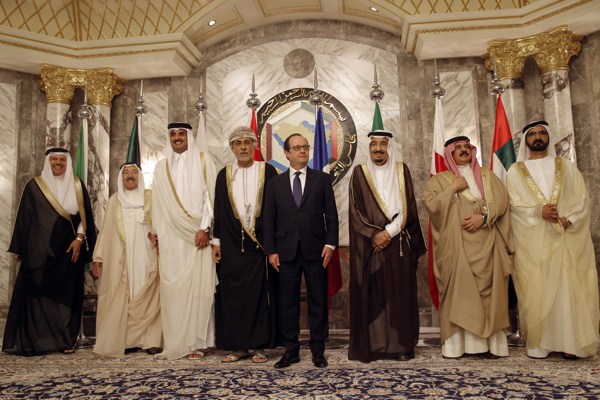French President Francois Hollande made a triumphal visit to the oil- and gas-rich kingdoms of the Persian Gulf earlier this month, touching down in Qatar to oversee the signing of a contract for the sale of 24 Rafale fighter jets, then continuing on to Saudi Arabia to attend the Gulf Cooperation Council Summit as the guest of honor, a first for a Western head of state.
Hollande’s Gulf tour was in part the product of shrewd French diplomacy, which took advantage of Arab displeasure at current U.S. policies in the region, most of all a framework agreement with Iran on its nuclear program. Nevertheless, a look at the history and nature of France’s Gulf ties makes it clear that the honeymoon period could end up lasting.
France has many interests and a long history of involvement in the Gulf. Like other permanent members of the United Nations Security Council, Paris believes that it has a special responsibility in maintaining global peace and international order, and thus stability in the Middle East is obviously a long-standing concern. Though France is less dependent on imported hydrocarbons than some of its partners, given its significant reliance on nuclear-generated electricity, the security of Gulf oil and gas transit routes is also seen as a global and European public good. More recent concerns include nuclear nonproliferation and counterterrorism, which stem as much from France’s global responsibilities as from the fact that both issues now represent a direct threat to Europe.

